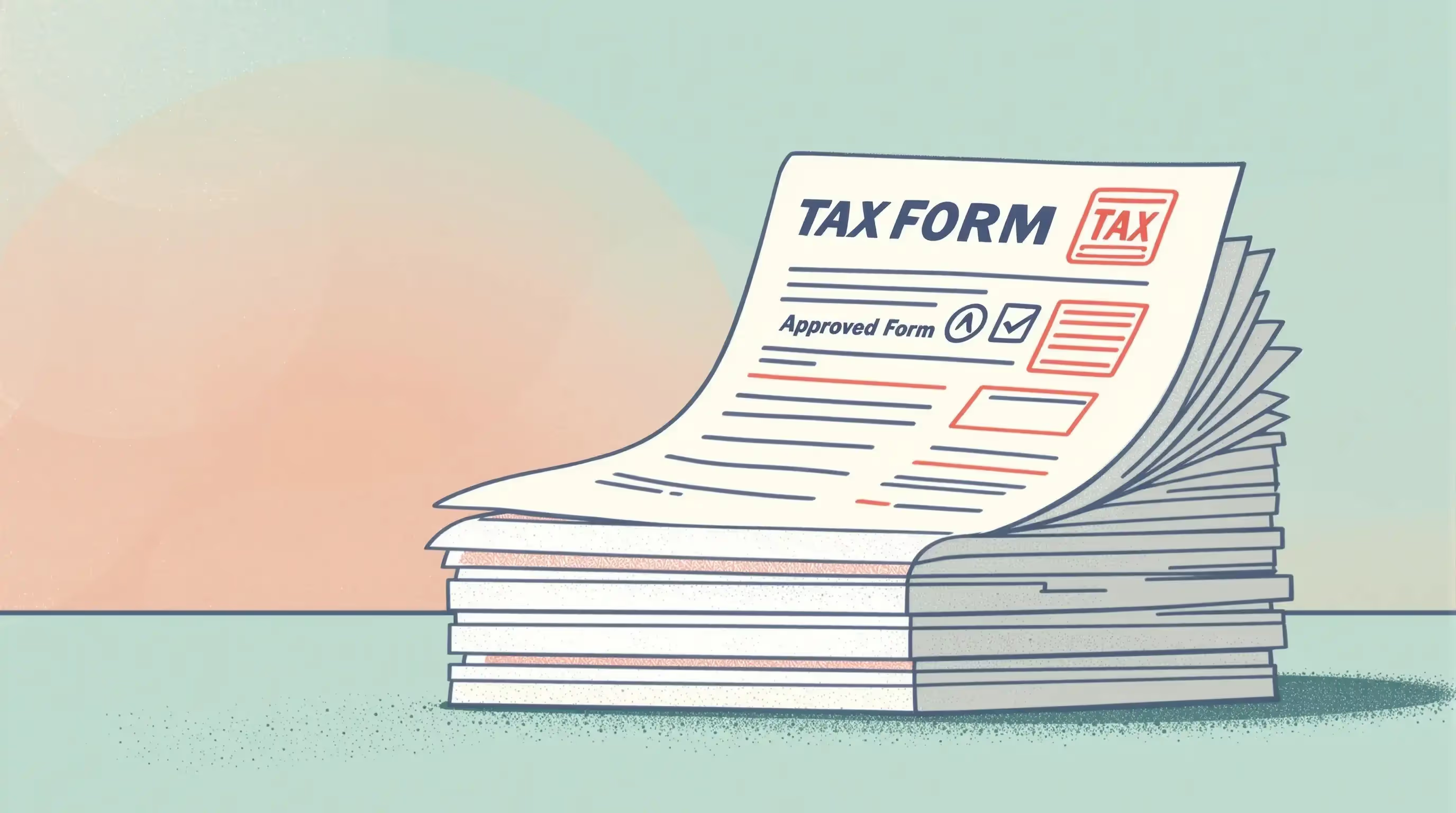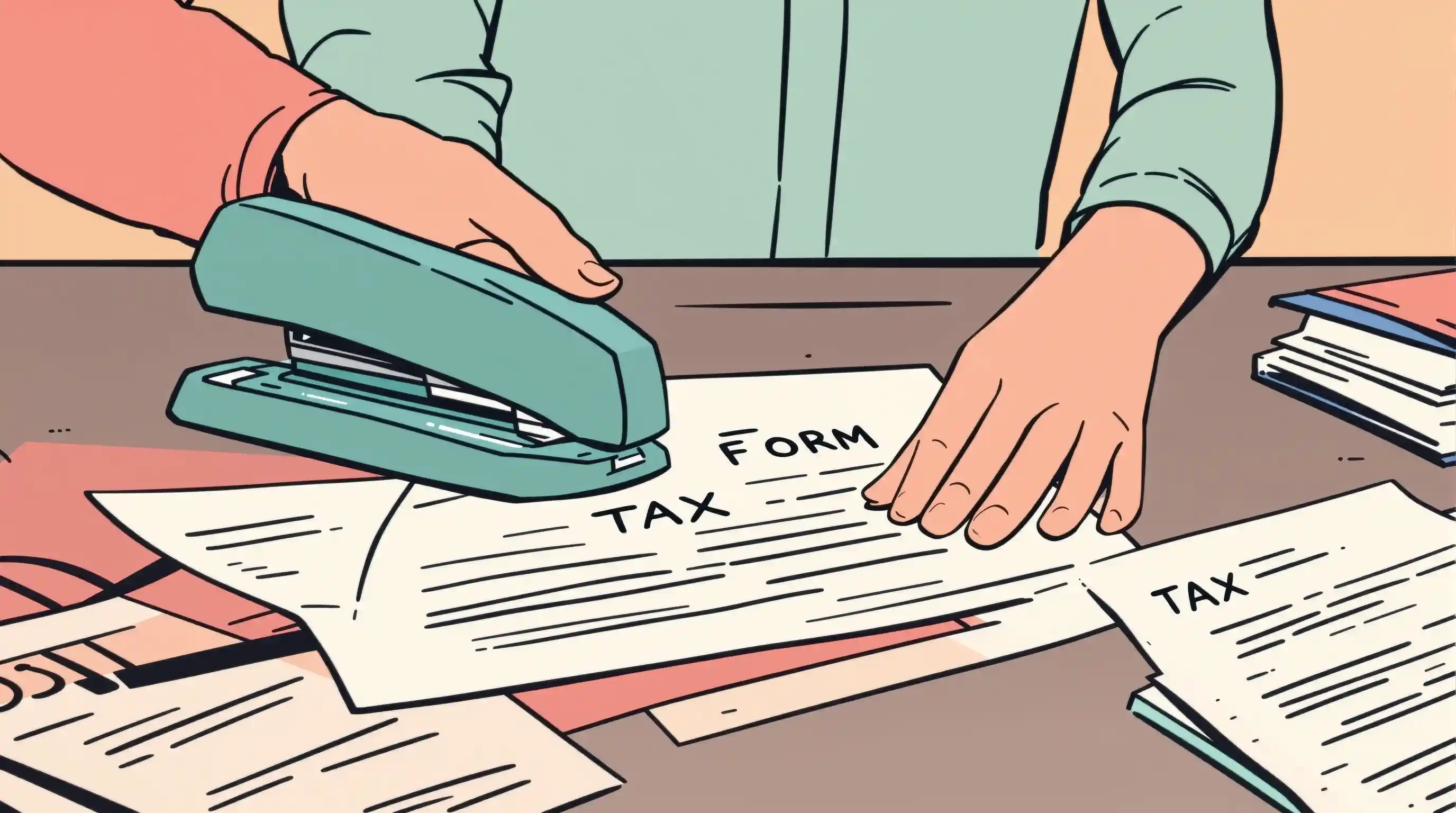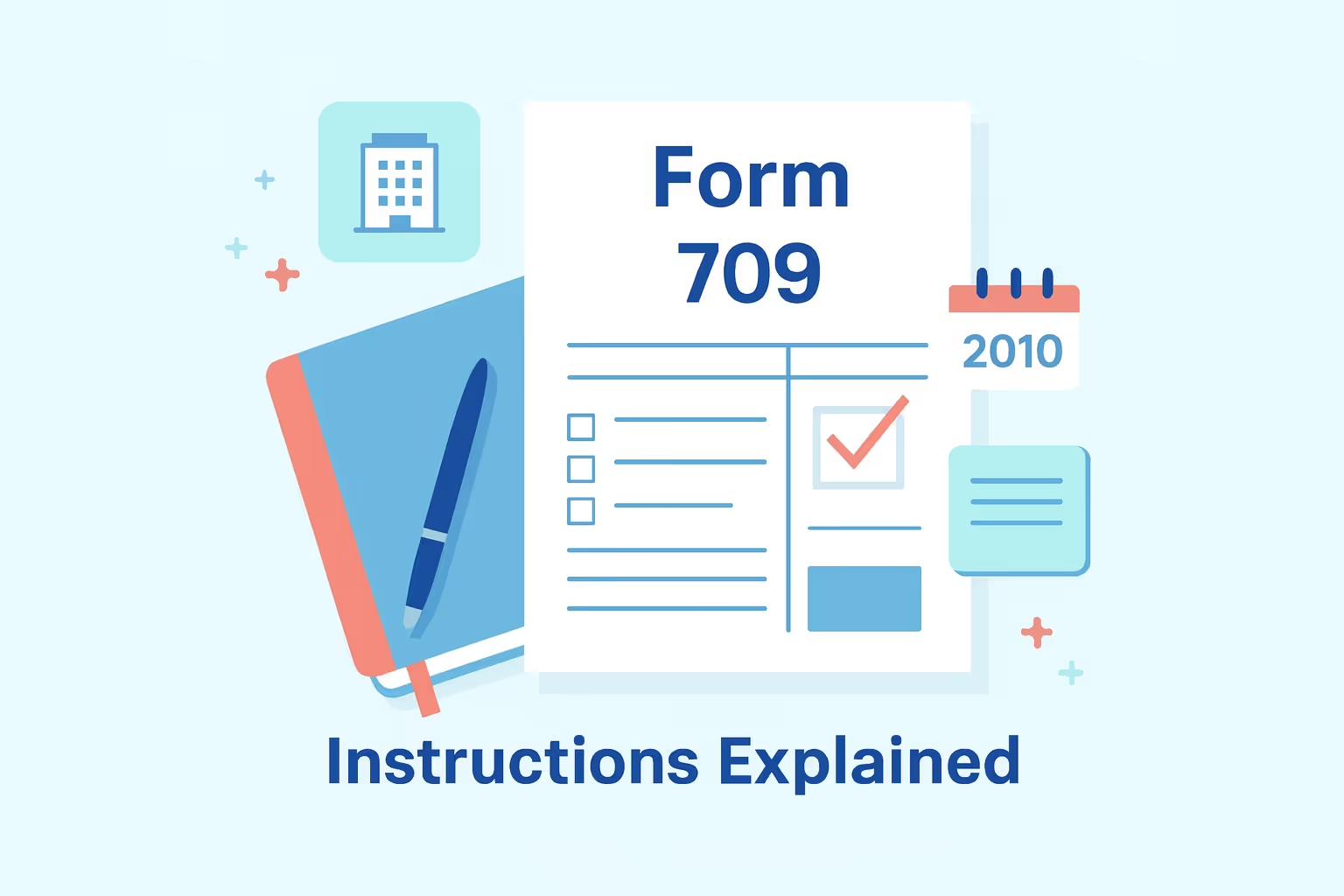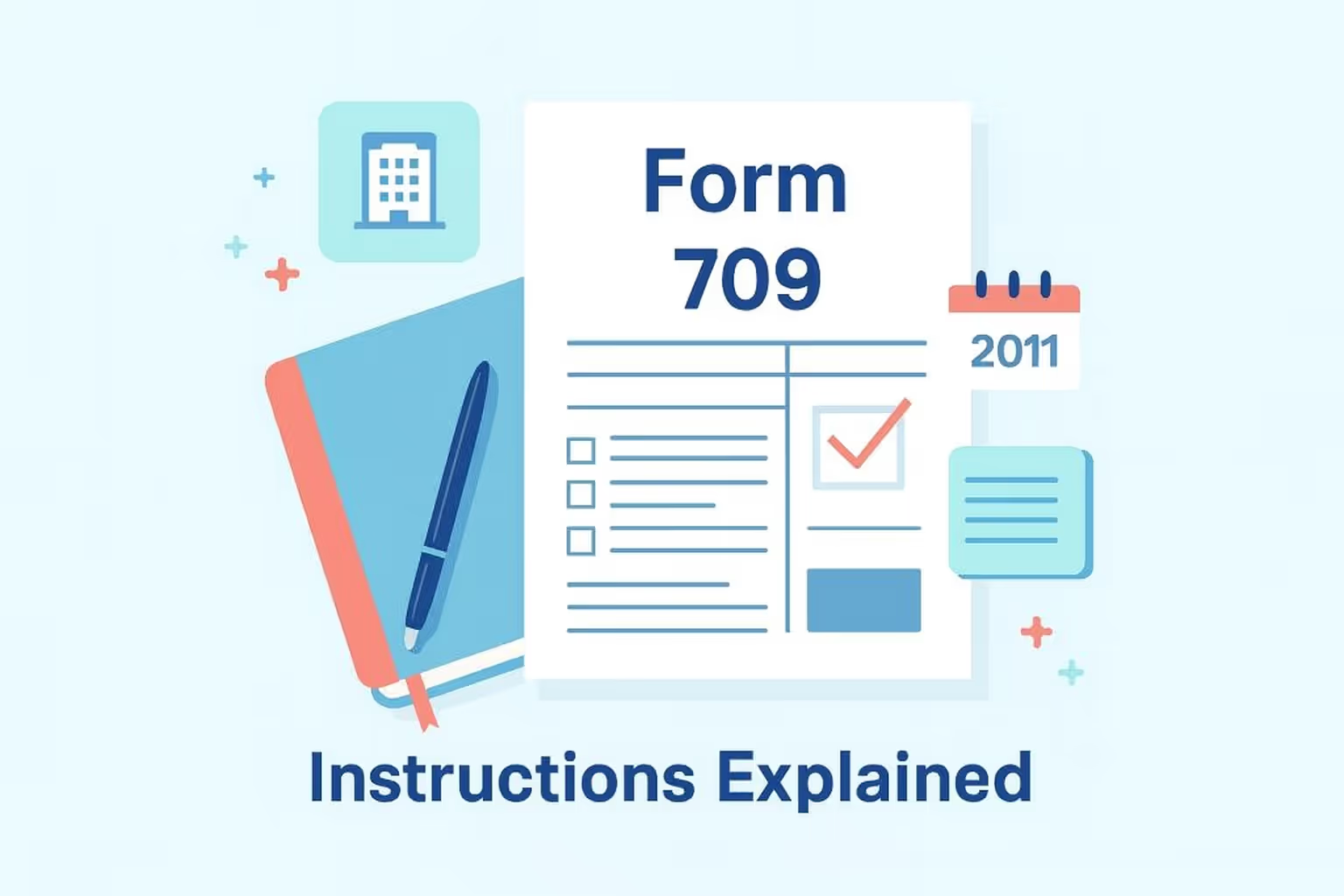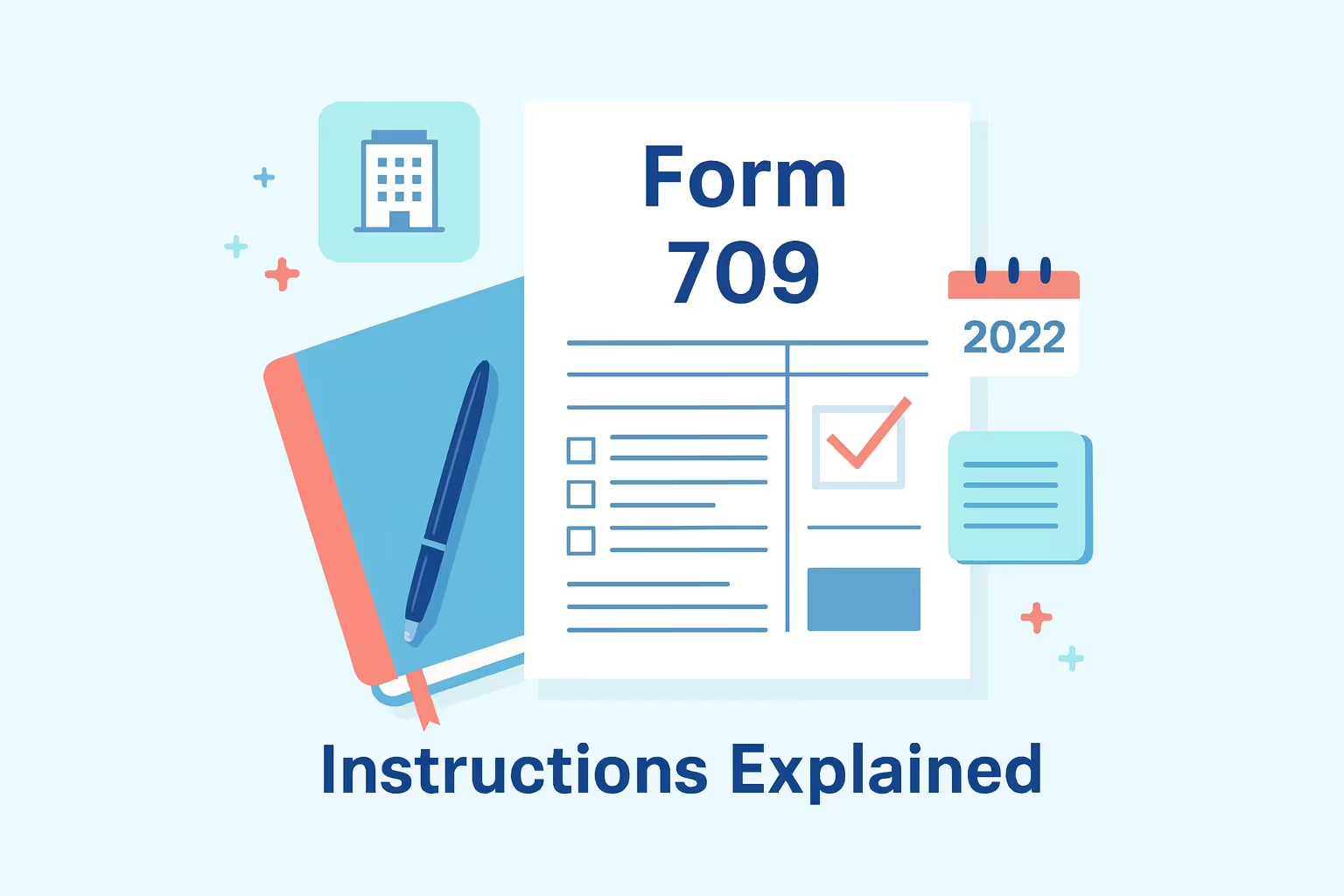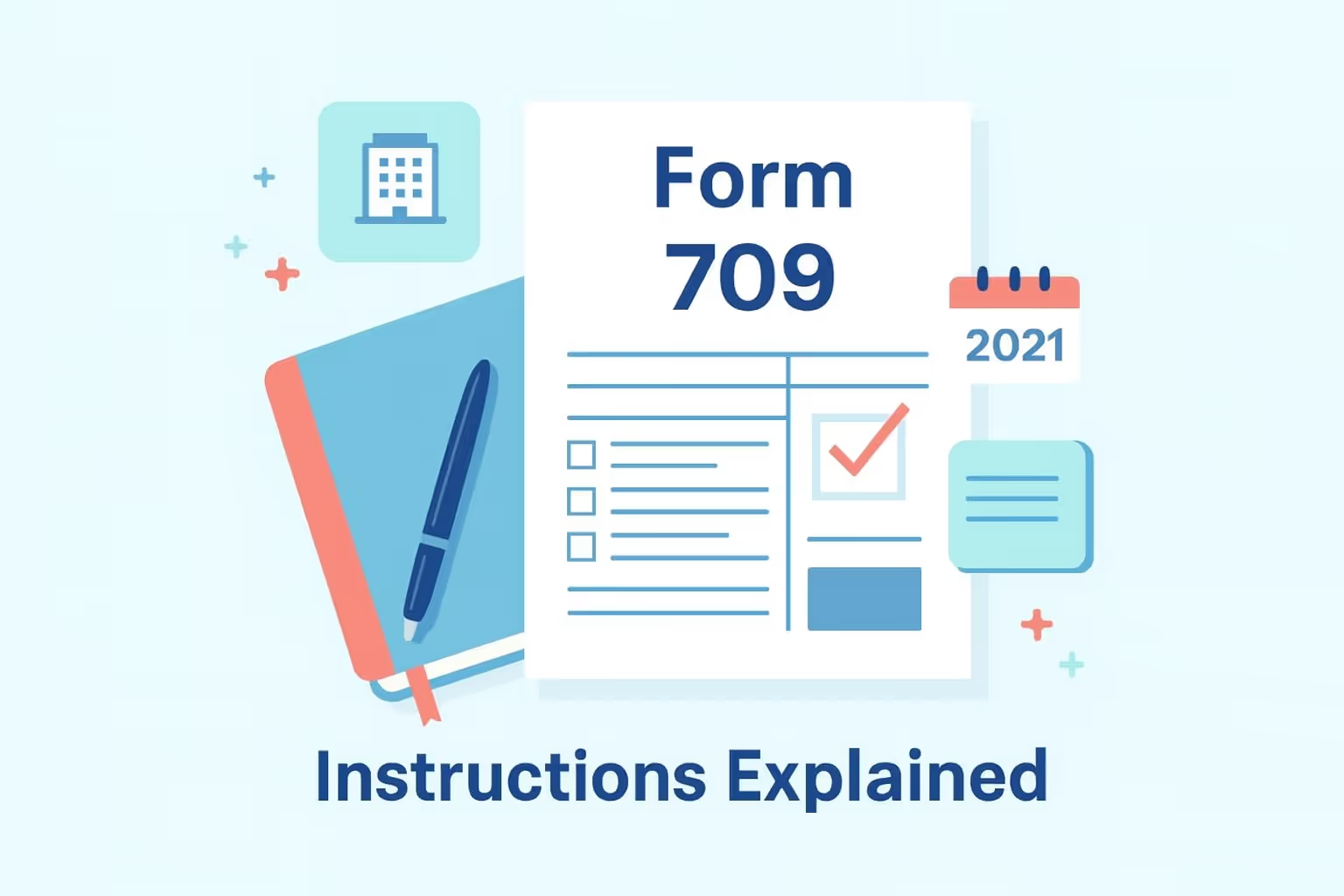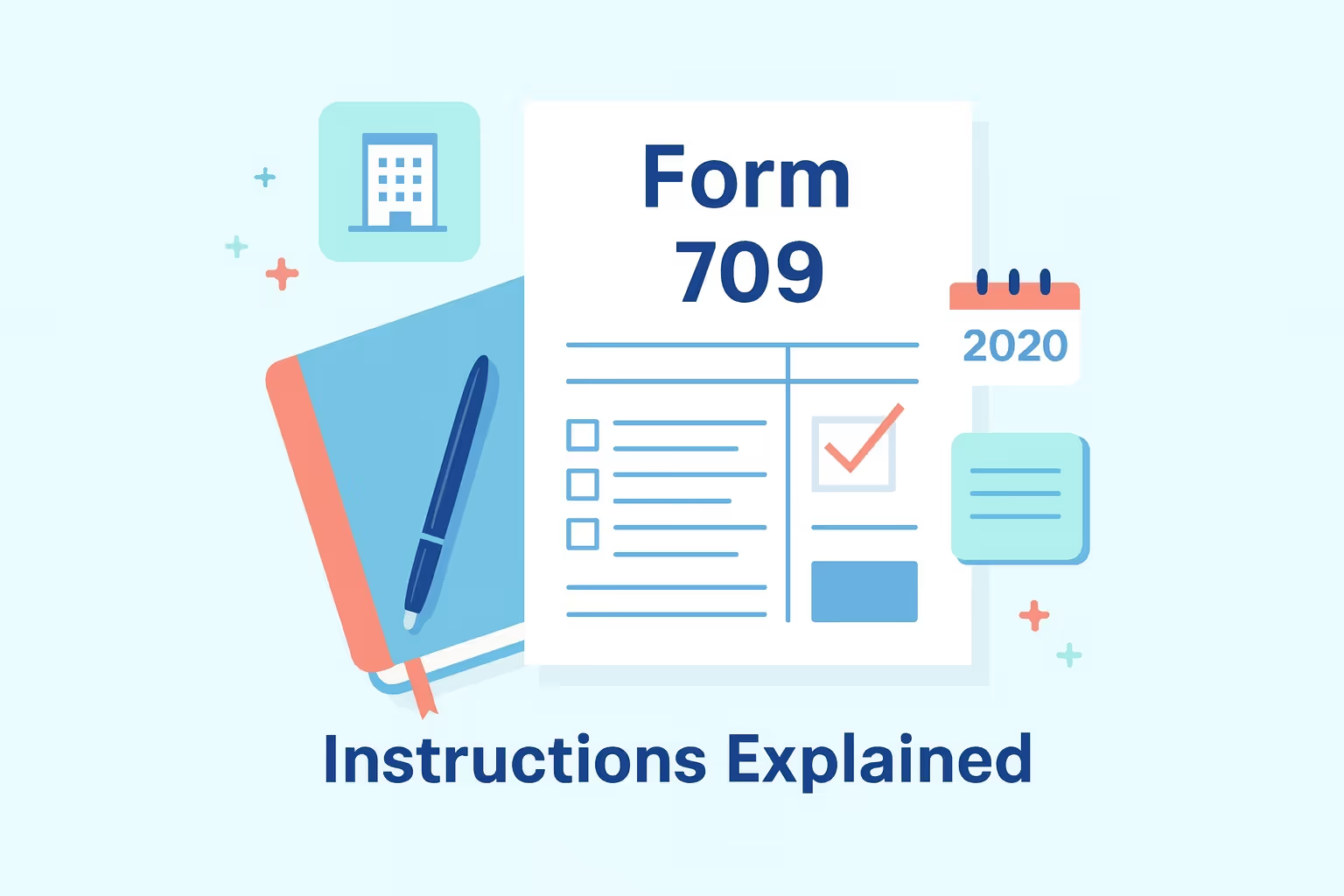
What IRS Form 706 (2019) Is For
IRS Form 706 (2019), United States Estate (and Generation-Skipping Transfer) Tax Return, is used by the executor of a decedent’s estate to calculate and report estate and gift taxes owed to the United States Treasury. It ensures that the value of a deceased person’s property and assets—known as the gross estate—is appropriately assessed and that any federal taxes due are paid.
This form applies to the estates of individuals who passed away in 2019. It must be filed if the gross estate, plus adjusted taxable gifts, exceeds $11.4 million, or if the executor wants to make a portability election to transfer any unused estate tax exemption to a surviving spouse. Even if no tax is owed, filing may still be necessary to preserve this exemption for the spouse.
For a detailed breakdown of filing requirements, eligibility rules, and step-by-step instructions, see our comprehensive IRS Form 706 (2019): Late & Amended Filing Guide.
When You’d Use Form 706 for 2019 (Late or Amended Filing)
Form 706 for 2019 must generally be filed within nine months of the decedent’s death. Executors can request an automatic six-month extension by submitting Form 4768 before the original due date. If the estate’s value exceeds $11.4 million or if the executor wants to make a portability election to transfer unused exemption to a surviving spouse, filing is required even when no tax is owed.
Late filings may occur when the executor becomes aware of the obligation after the deadline or when estate valuations are delayed. In such cases, the IRS may grant penalty relief for reasonable cause if the executor demonstrates diligence and makes a good-faith effort to comply. Amended returns are also filed when errors are found or new assets are discovered. Estates making a late portability election may qualify for special relief under Revenue Procedure 2017-34, which allows for filing up to two years after the date of death.
Key Rules or Details for 2019
Form 706 for 2019 includes several year-specific tax thresholds and rules that determine filing requirements and potential liability.
2019 Estate Tax Thresholds
- Basic exclusion amount: $11.4 million
- Unified credit: $4,505,800
- Annual gift exclusion: $15,000 per recipient
- Special-use valuation limit: $1,160,000
- Section 6166 installment payment threshold: $1,550,000
Administrative and Form Changes
- Schedule R-1 became a separate form and is no longer attached to Form 706.
- Original estate tax returns are filed with the IRS in Kansas City, Missouri.
- Amended estate tax returns are filed with the IRS in Florence, Kentucky.
Executors must report each asset at its fair market value as of the decedent’s date of death, using accurate appraisals for real estate, securities, business interests, and other property. All taxable gifts made after 1976 should also be reconciled with prior Form 709 submissions to ensure accuracy between lifetime and estate transfers.
For more resources on filing or understanding prior-year IRS forms, visit our guide on Estate, Gift, and Trust Forms.
Step-by-Step (High Level)
Step 1: Gather Required Documents
- Death certificate
- Will or trust documents
- Appraisals and financial statements
- Prior gift tax returns (Form 709)
- Receipts and proof of payment
Step 2: Determine the Fair Market Value of All Assets
- Real property, bank accounts, securities, and business interests
- Life insurance proceeds using Form 712
Step 3: Calculate Deductions and Credits
- Funeral expenses
- Debts and mortgage interest
- Charitable contributions
- Marital deductions
Step 4: Complete and Review the Return
- Fill out all schedules (A through R).
- Attach supporting documentation.
- Review valuations and reconciliations.
Step 5: Request Extensions if Needed
Submit Form 4768 before the nine-month deadline to obtain an automatic six-month extension for filing.
Step 6: File and Pay
- Mail original returns to IRS, Kansas City, MO 64999
- Send amended returns to IRS, Florence, KY 41042-2915
Payment options: Check payable to “United States Treasury” or electronic payment via EFTPS.
Executors may also request installment agreements using Form 9465 or elect to defer payments under Section 6166 if the estate includes a qualifying closely held business.
Common Mistakes and How to Avoid Them
Frequent Filing Errors
- Executors miss the portability election and lose the exemption transfer to a spouse.
- Valuations are inaccurate due to missing or outdated appraisals.
- Prior taxable gifts are not reconciled with Form 709 records.
- Required schedules or attachments, such as Form 712, are omitted.
- Using the incorrect IRS filing address can result in delays or rejection.
- Generation-skipping transfers are not reported when required.
Prevention Tips
Executors can avoid these issues by consulting a qualified tax preparer or estate professional, ensuring fair market appraisals, and reviewing the IRS instructions for Form 706 before submitting it.
What Happens After You File
After Form 706 is submitted, the IRS issues an acknowledgment of receipt and reviews the return for completeness and accuracy. The review process can take several months, and the IRS may request additional documents, especially for large or complex estates. Interest continues to accrue on any unpaid tax balance until it is fully paid.
If taxes are due, executors can request an installment plan using Form 9465 or apply for deferred payments under Section 6166 for qualifying business estates. Once processing is complete, a closing letter can be requested, or account transcripts may be used to confirm receipt of payment. These transcripts serve as official proof that the estate tax return has been processed and the account resolved.
Frequently Asked Questions
Can Form 706 for 2019 still be filed after the deadline has passed?
Yes, Form 706 for 2019 can be filed after the nine-month deadline if missed. Executors should file as soon as possible to reduce IRS penalties and interest. Late submissions may still qualify for reasonable cause relief.
Who must file an estate tax return for 2019?
An executor must file an estate tax return if the gross estate and adjusted taxable gifts exceed $11.4 million or when electing portability for a surviving spouse. Filing ensures compliance with federal taxes and preserves exemption benefits.
Can Form 706 be filed electronically?
Currently, IRS Form 706 cannot be filed electronically or e-filed. Executors must mail paper forms and checks payable to the United States Treasury. However, federal tax payments can be made online through the IRS EFTPS service.
What deductions can be claimed on Form 706?
Allowable deductions include funeral costs, debts, mortgage interest, charitable contributions, and administrative expenses. Proper documentation and receipts are required to verify each deduction and accurately determine the fair market value of the decedent’s estate.
How do adjusted taxable gifts affect the estate tax calculation?
Adjusted taxable gifts made after 1976 are added to the gross estate when determining the total taxable value. Accurate reporting ensures accurate tax calculation under estate and gift taxes, preventing IRS penalties for underreporting or omissions.
How does an executor pay estate taxes after filing?
Executors can pay by check payable to the United States Treasury or use electronic methods through EFTPS. Estates that qualify may request installment payments or deferral under Section 6166 for closely held business property.
May I request assistance with preparing Form 706?
Yes, executors can seek expert help from tax preparers or estate professionals to prepare accurate tax returns, calculate fair market value, and apply deductions. Professional guidance helps avoid errors and ensures proper compliance with IRS filing rules.








